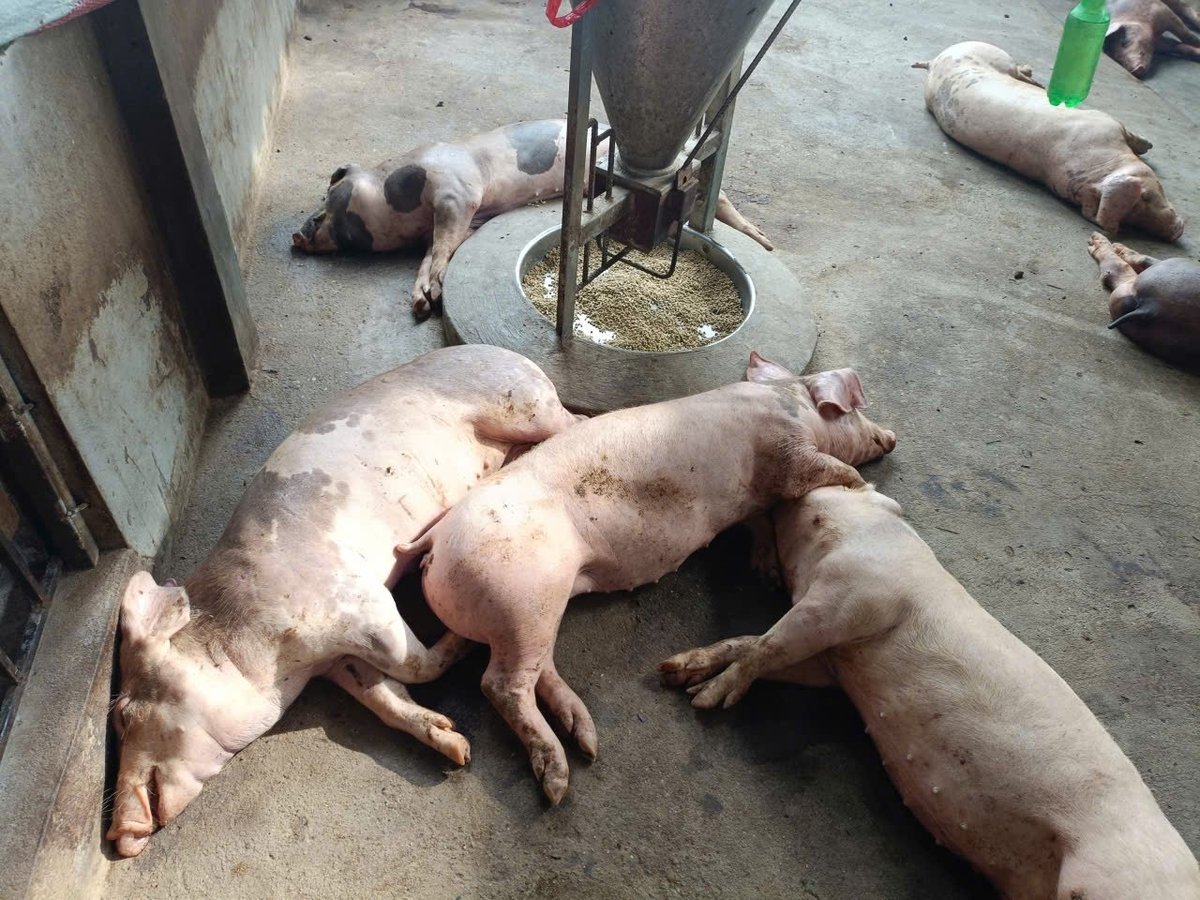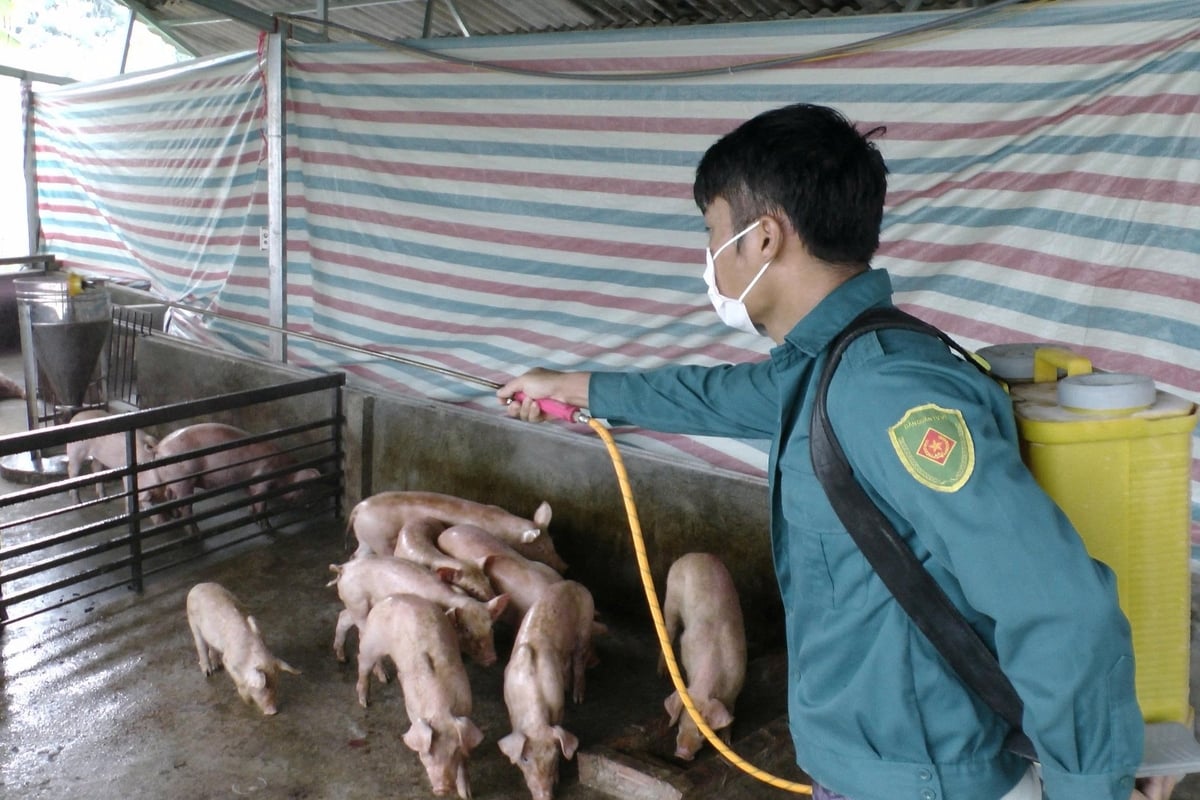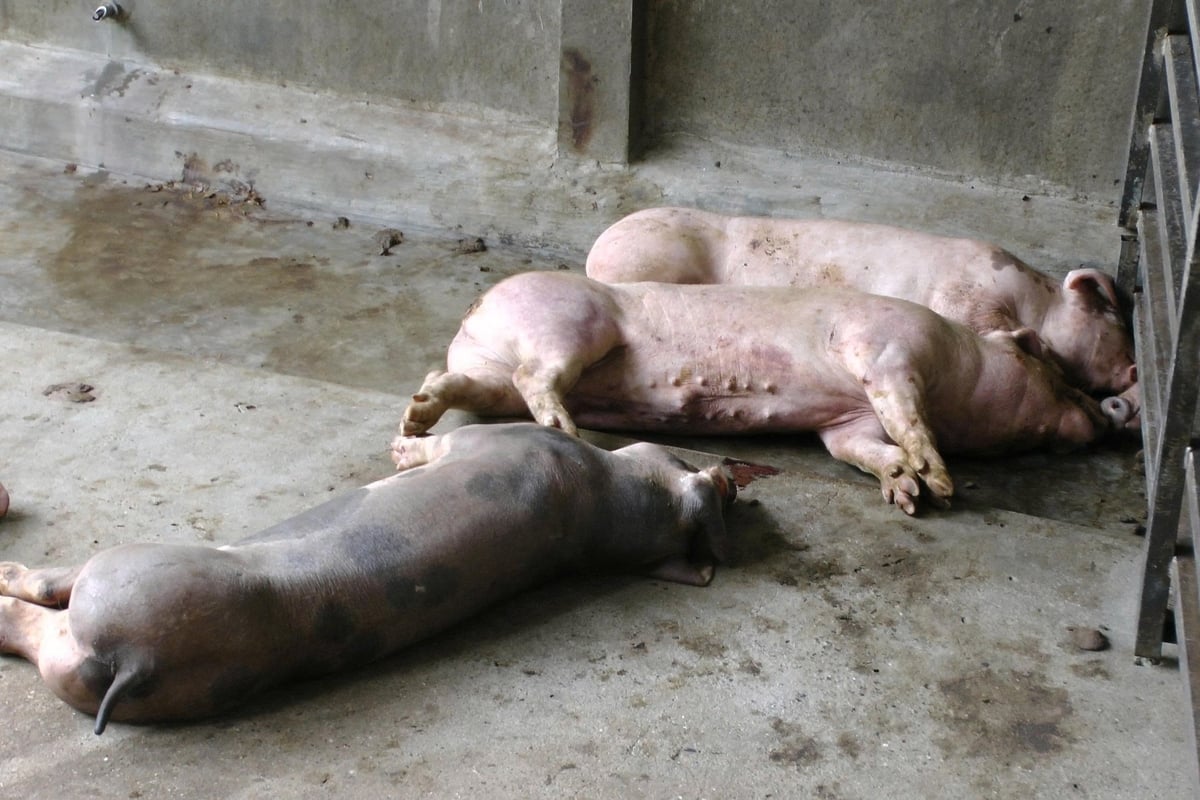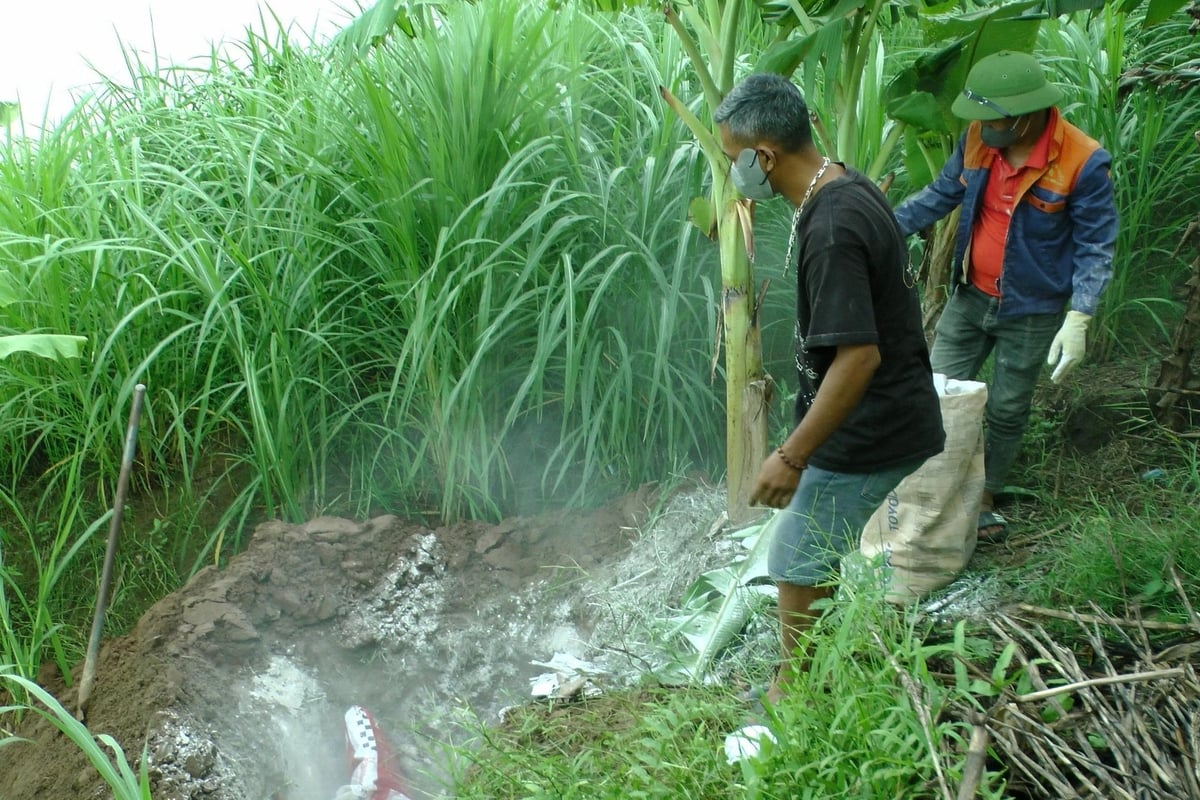December 3, 2025 | 04:17 GMT +7
December 3, 2025 | 04:17 GMT +7
Hotline: 0913.378.918
December 3, 2025 | 04:17 GMT +7
Hotline: 0913.378.918

The number of communes and wards in Lao Cai province with outbreaks of African swine fever continues to increase. Photo: Thanh Tien.
The current African swine fever situation in many localities of Lao Cai province is progressing in an unexpected manner with rapid spread, causing significant damage to farmers. The recent report from Lao Cai Department of Agriculture and Environment shows that African swine fever has so far occurred in 27 communes and wards in the province.
A total of 112 villages, hamlets and residential groups are affected. The number of pigs that died and had to be destroyed has reached nearly 1,900, equivalent to a loss of more than 107 tons. Quy Mong, Tran Yen, Mau A, Cau Thia, Van Phu, and Minh Luong are localities suffering the most because of the disease.
This development progress demonstrates the epidemic’s sudden surge in severity. Compared to just a few weeks ago, the volume of destroyed pigs has increased manyfold, causing damage to nearly 400 households. Although localities are very active in implementing prevention work, the risk remains very high and outbreaks are more likely to occur.
Ninh Tran Phuong, Deputy Head of Lao Cai Sub-Department of Crop Production and Plant Protection, Livestock Production, Animal Health and Fisheries, said, “When an outbreak was detected, local authorities and specialized agencies immediately stepped in, coordinating with people to thoroughly handle it.
“Infected pigs are destroyed according to strict procedures: lime powder and disinfectants are used in secure burial sites to prevent pathogens from spreading into the environment. However, extinguishing an outbreak does not mean complete safety because the African swine fever virus can spread through many different routes.”

Localities and farmers are working hard against the epidemic. Photo: Thanh Tien.
The reality is that most outbreaks occur in small-scale livestock farms. Large farms, which apply strict biosecurity procedures, have not been affected. This is a major difficulty in the fight against the epidemic. It is these small-scale farms with fragile biosecurity barriers that have become ideal conditions for the virus to spread at a dizzying speed.
The most common cause is the farmer’s habit, coupled with hard-to-control farming conditions. Barns are often located close to the road or next to neighbors' houses, without a buffer zone. People still keep the pattern of going back and forth, interacting, thus unintentionally carrying pathogens on their clothes and shoes from one place to another.
Buying piglets of unknown origin, floating on the market at cheap prices, also adds a level of deadly risk. A vehicle that has just transported sick pigs, if not properly disinfected, can immediately become a source of infection for a new batch of piglets.

There are many factors that can cause the spread of African swine fever. Photo: Thanh Tien.
Facing the urgent situation, the agricultural sector of Lao Cai province is resolutely implementing synchronous solutions. The Director of the provincial Department of Agriculture and Environment has directed the province to request supplies and disinfectant chemicals to support localities and people. Functional forces such as the police and market management officials have also strengthened control over transportation and slaughter.
“Above all support, there is nothing better than farmers protecting livestock themselves. First of all, when detecting pigs with unusual signs such as lack of appetite, fever, and bleeding, people must be responsible for immediately reporting to local authorities for instructions, absolutely must not hide the disease or arbitrarily sell or slaughter,” said Ninh Tran Phuong.

Farmers need to strictly apply biosecurity farming procedures to protect their pigs. Photo: Thanh Tien.
As for households that have unfortunately had an outbreak, rushing to rebuild their herds can leave them "empty-handed" again. People need to be patient, clean and disinfect their barns thoroughly and must leave them empty for at least six months. After this safe period, choosing piglets from reputable establishments, with clear origins and fully vaccinated, is the decisive factor in sustainable recovery.
Because of the sporadic nature of the disease in residential areas, zoning and containment work is still a big challenge for the local veterinary force. If the disease occurs in a large farm, the locality can declare the disease and set up checkpoints around that area. The fact that households with sick pigs are scattered requires a large amount of human and material resources to prevent the disease.
Translated by Samuel Pham

(VAN) Con Dao National Park officially received its Green List status after it was announced at the IUCN World Conservation Congress in Abu Dhabi in October.

(VAN) The National Assembly’s inspection delegation called for a renewed approach to marine economic development, the removal of legal 'bottlenecks,' and strengthened marine environmental protection.

(VAN) The inevitable path forward is to reorganize production along the value chain, utilizing cooperatives as the core, enterprises as the driving force, and farmers as the central subjects.

(VAN) On November 28, Minister Tran Duc Thang, together with China's Minister of Agriculture and Rural Affairs Han Jun, chaired the 2nd meeting of the Viet Nam - China Agricultural Cooperation Committee.

(VAN) Forest carbon credits are only accepted when they ensure absolute environmental integrity, additionality, permanence, and transparency.

(VAN) Viet Nam partners with Beijing on controlling air pollution, cross-regional management, high-tech monitoring and relocating polluting facilities.

(VAN) With a USD 50 million investment, Australia is partnering with Viet Nam to operate its first public electric bus fleet and develop a nationwide EV charging network.